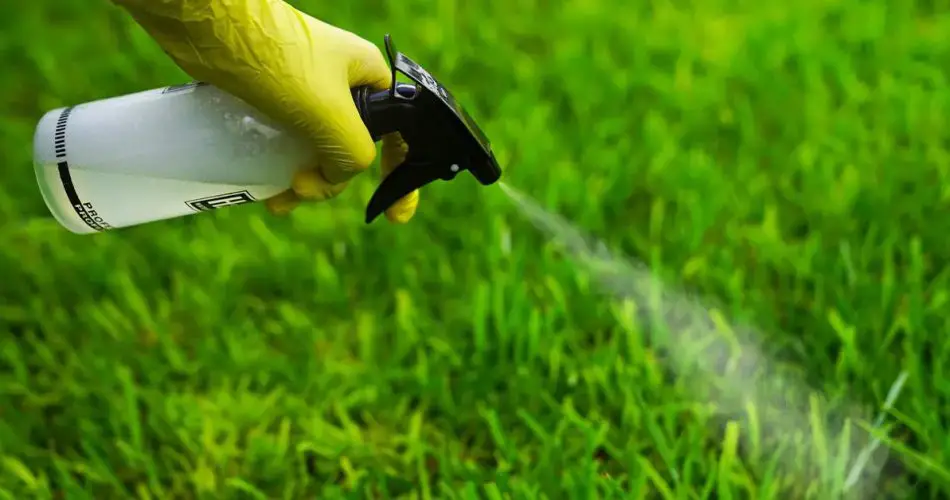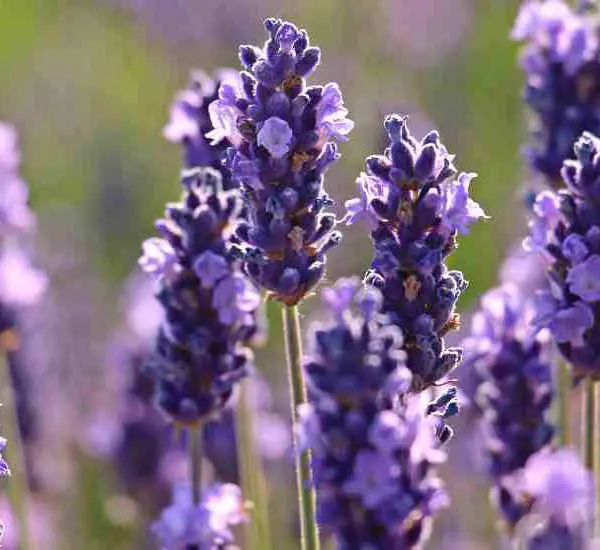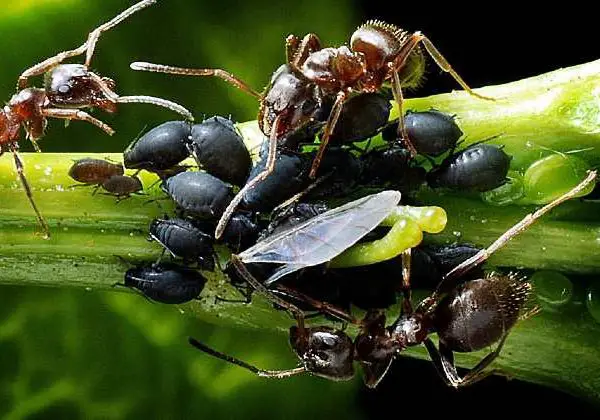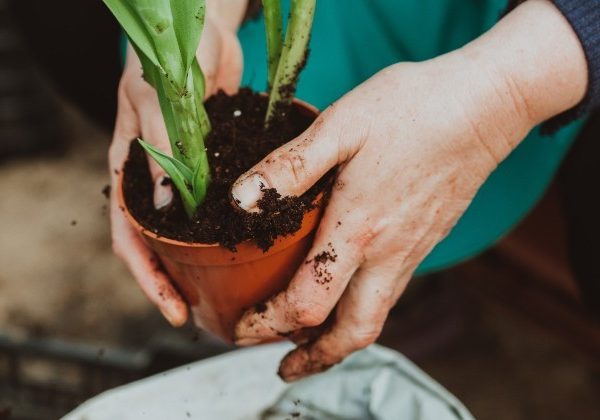Are you tired of the unsightly moss ruining your beautiful lawn? Surprisingly, moss can be even more invasive than weeds. If you’re struggling to get rid of this unwanted pest, don’t worry—there are several natural remedies you can easily prepare at home. Follow our advice and practical tips to restore your lawn’s health and vitality.
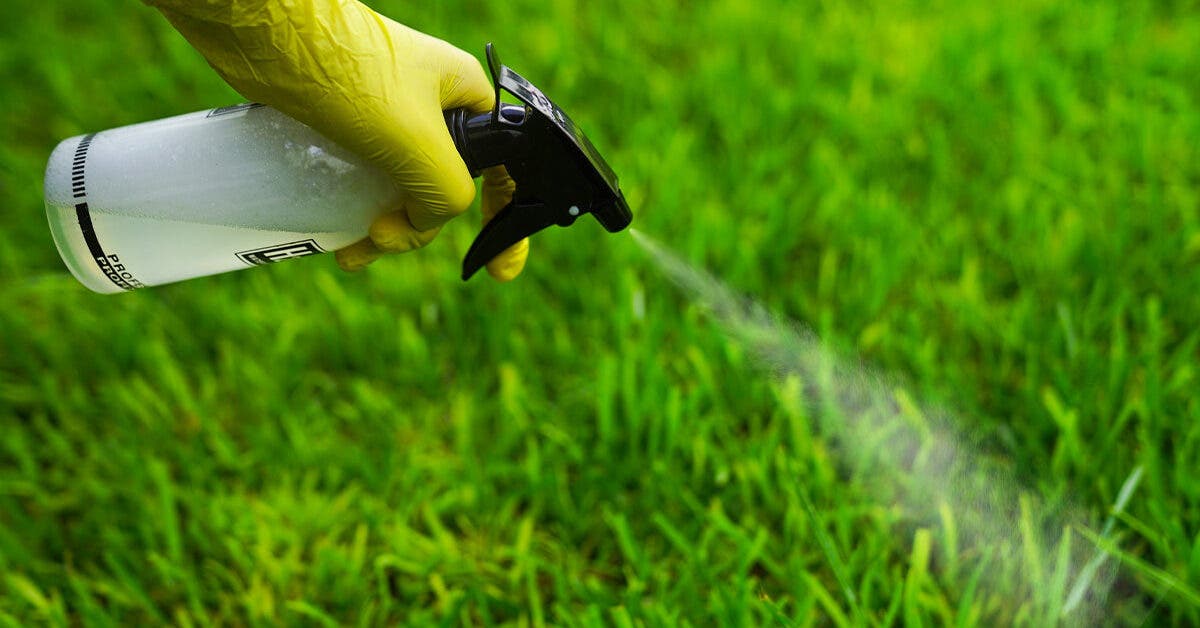
What Exactly Is Moss?
Moss is an ancient, primitive plant that lacks roots, stems, or conventional leaves. Without these vascular structures, moss thrives only in consistently humid environments. It is robust, adaptable, and can grow almost anywhere on Earth, generally developing vertically. While moss can sometimes add an aesthetic touch to a forest, when it invades your lawn, its sole goal is to dominate the space. To prevent a full-blown invasion, it’s wise to take action and eliminate it naturally to maintain your lush garden.
What Causes Moss to Invade Lawns?
To effectively address moss problems, focus on the main factors that trigger its presence:
- Lack of nutrients in the soil, particularly acidic (low pH) conditions: Moss tends to grow in nutrient-deficient, acidic soils.
- Compacted soil and poor drainage: Moss thrives in compacted, wet soils where water and air circulation are poor.
- Shady areas: Moss prefers shady environments where sunlight doesn’t support healthy grass growth.
- Questionable soil quality: Poor soil quality affects grass growth, promoting moss proliferation.
8 Home Remedies to Eliminate Moss from Your Lawn
1. With White Vinegar
Thanks to its acidity, white vinegar is an excellent ally for killing moss (and weeds!) without harming the surrounding area.
- How to use: Dilute vinegar in hot or warm water and spray it directly onto the moss. Leave it to act for a few days for complete elimination.
2. With Epsom Salt
Rich in magnesium, Epsom salt inhibits moss growth.
- How to use: Spread approximately 1 kg of Epsom salt over 100 m² of lawn. Water thoroughly to remove moss and improve soil quality.
3. With Boiling Water
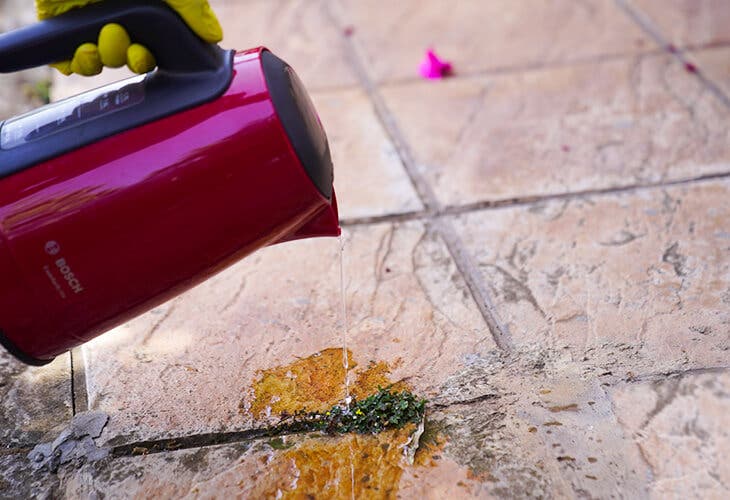
Boiling water is also an effective remedy for moss.
- How to use: Pour boiling water over the moss between slabs and sidewalks. Repeat the process for a few days to ensure the moss is gone.
4. With Wood Ash
Wood ash, containing lime, is a proven anti-moss agent and can rejuvenate your lawn.
- How to use: Collect untreated ash from your fireplace or wood stove and sprinkle it directly on the moss. Scarify the lawn a few weeks after treatment to restore its appearance.
5. With Starchy Water
Cooking water from potatoes or rice, due to its high starch content, can help eliminate moss.
- How to use: Pour the cooking water (even if still boiling) onto the moss. Use a stiff-bristled broom to scrub the affected areas thoroughly.
6. With Black Soap
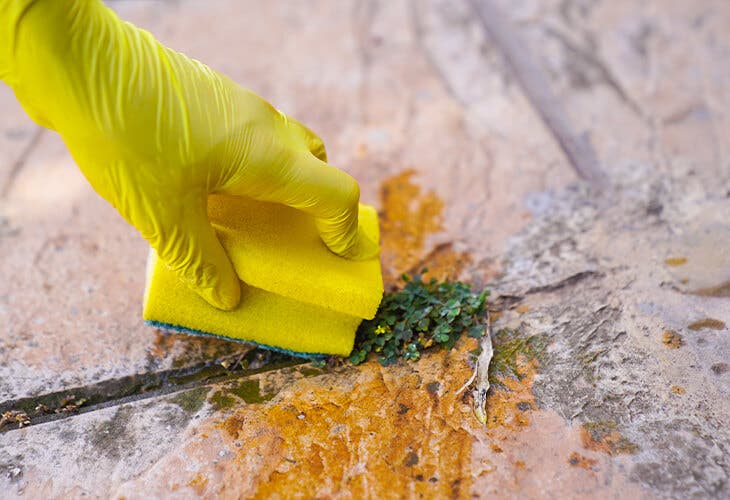
Black soap is another natural product effective in removing moss and cleaning surfaces.
- How to use: Mix 200 ml of black soap in 5 liters of water, add a bit of natural dishwashing liquid, and scrub the moss with a sponge soaked in the solution.
7. With an Alcohol-Based Solution
Surprisingly, vodka can act as a herbicide.
- How to use: Sprinkle a little vodka directly on the moss and other weeds. Repeat if necessary to ensure complete removal.
8. With Baking Soda
A time-tested remedy, baking soda is a reliable solution against moss.
- How to use: Mix 2 tablespoons of baking soda per liter of water. Spray the solution onto the moss, and rake off the dead moss after a few days.
When Should Moss Be Removed from the Lawn?
Ideally, remove moss between the end of winter and the beginning of spring, before the spring sowing period. This timing aligns with the plants’ increased vegetative activity, making it the best moment to eliminate moss. Avoid removing moss during very hot or cold periods, as these conditions can stress the lawn.
How to Prevent Moss from Forming on the Lawn?
To prevent moss growth, address the issues that encourage its spread:
- Test soil periodically to determine if it needs lime to reduce acidity and support healthier grass growth.
- Improve drainage to avoid stagnant water, which promotes moss.
- Thin out nearby trees or shrubs to increase sunlight exposure for the grass.
- Aerate compacted soil to prevent moss growth.
- Establish a good maintenance routine to keep your lawn vigorous and healthy.
FAQ
What is the best homemade anti-moss remedy?
A 50/50 mixture of vinegar and hot water (or bleach and water) is effective for killing moss and its spores. Apply this solution directly to affected areas for best results.
Does white vinegar kill moss?
Yes, white vinegar is effective against moss due to its acetic acid content. Mix a tablespoon of distilled white vinegar with a gallon of warm water and apply it with a spray bottle.
How do I permanently remove moss from my lawn?
Powerful products like potassium soap, fatty acids, or ferrous sulfate can dry out moss. Follow the application instructions carefully, and once treatment is complete, rake the moss to enjoy a healthy lawn again.
